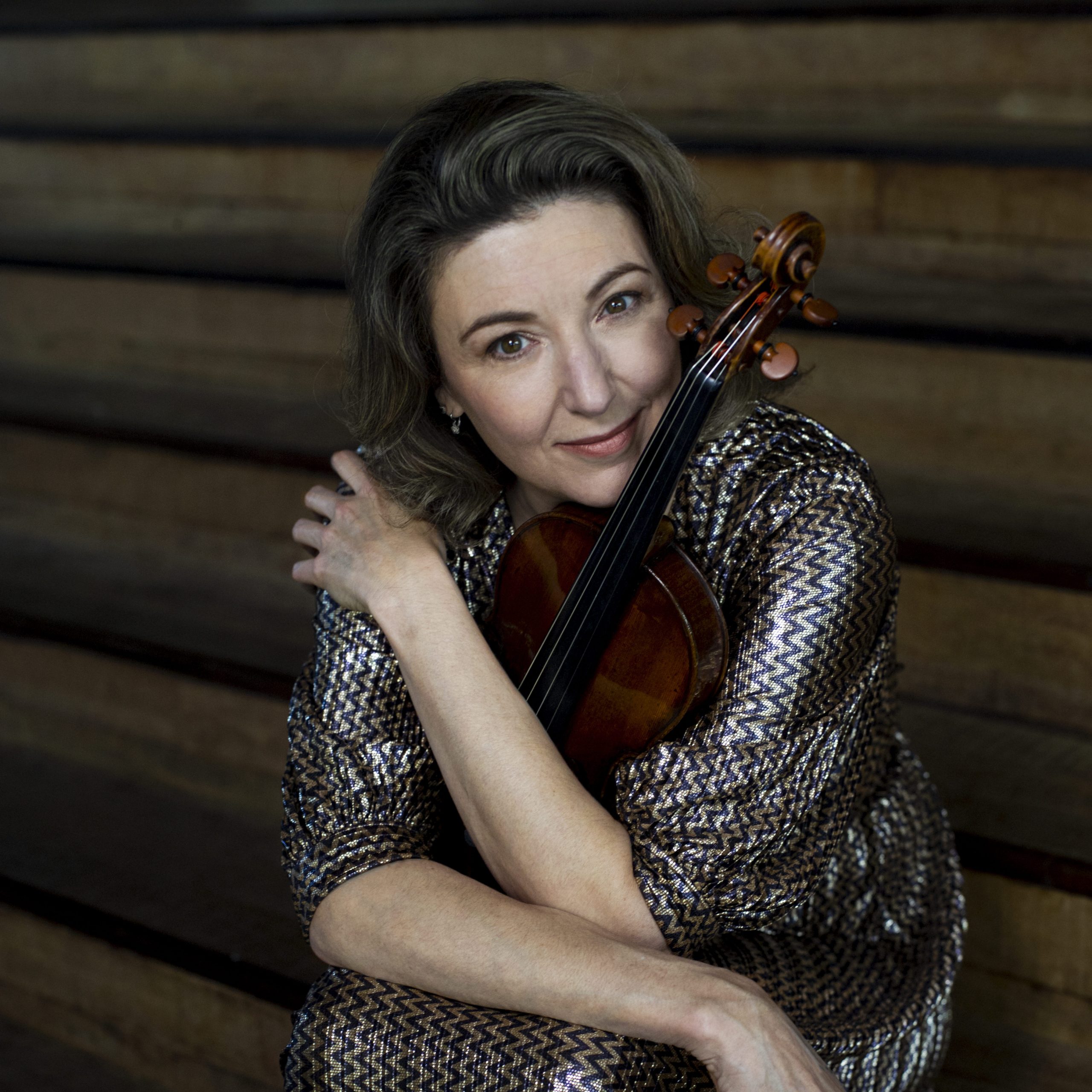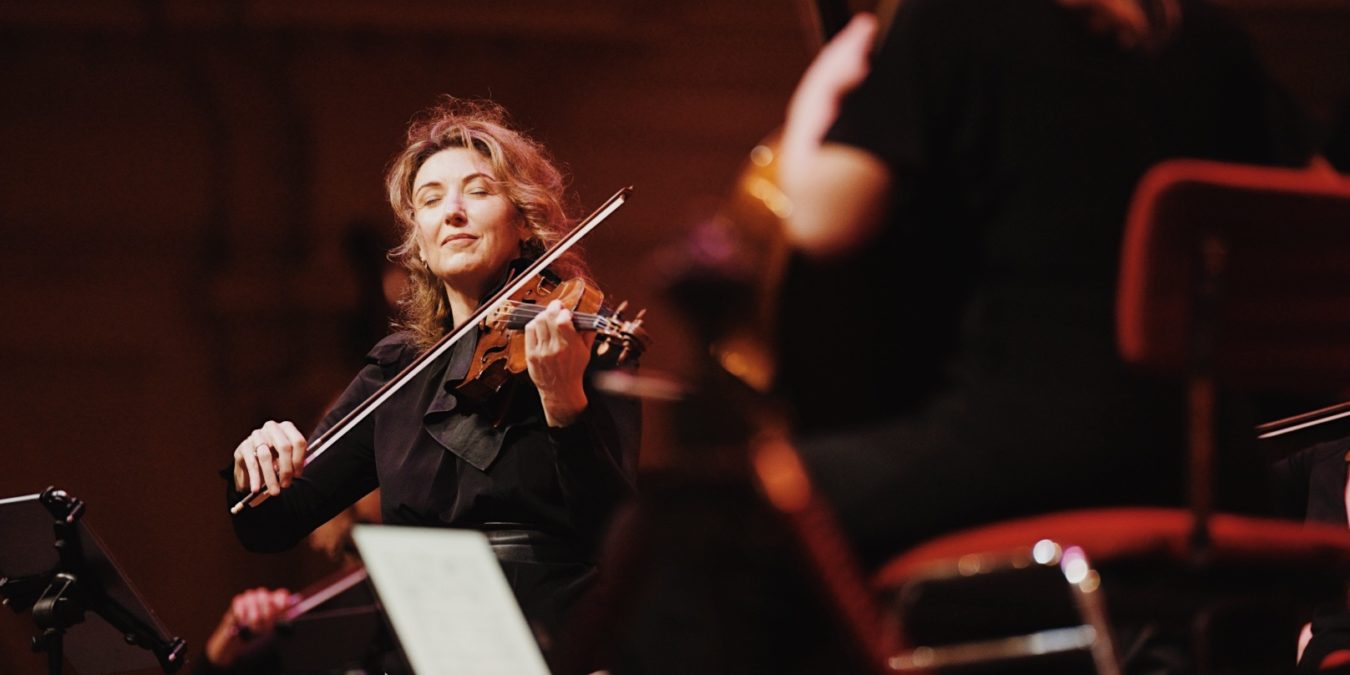‘At first I was very eager to become a singer,’ said Candida Thompson, ‘but the soprano Janet Baker advised me to first learn an instrument before venturing into singing. And that’s how it happened: I began playing the violin and ended up studying with David Takeno at the Guildhall School of Music & Drama at the age of 17. I also briefly considered playing the viola, but the violin clearly suited me the best. Naturally, by now I can no longer imagine it any other way,’ Thompson laughed.
‘Actually, I adore the viola’s dark tone and am less keen on the violin’s soprano-like sound. Fortunately, the violin that I currently play on, a Guarneri, has a dark, warm tone, like a true Italian. It has huge depth of sound and a rich variety of colours. Another very crucial point is that this instrument easily fits into an ensemble; its timbre blends very well with other instruments. When necessary, the violin’s sound projects effortlessly, and I find it has a very personal, appealing character.’
Candida Thompson plays on this Guarneri in Amsterdam Sinfonietta, the group she joined as concertmaster in 1995. Since 2003 she has also been the group’s artistic director. Under her leadership Sinfonietta has recorded numerous CDs with the Channel Classics label.
Thompson has performed as a soloist with diverse orchestras in Europe, the United States and Asia. However, her greatest passion is for chamber music. She has played together with her mentors Isaac Stern and Bruno Giuranna, and recently with Harriet Krijgh and Simone Lamsma. Thompson is also a member of the Hamlet Piano Trio. ‘I grew up playing chamber music and it is very close to my heart; the focus is not on the individual but on interactive ensemble playing. Creating something together, not being swallowed up in the whole, yet on the other hand not just being alone in the spotlight as soloist; being part of a small ensemble is my ideal, working towards a sublime result. Lovingly caressing the music into life together with other musicians is incredibly satisfying.’
‘I also really enjoy it when young musicians play with Sinfonietta, it helps them develop themselves and discover their own voice and how it fits with other musicians. It is fantastic to observe this growth process and also to experience it oneself. When playing in a small group, one really needs to go about it in a very precise way and be aware of what one is doing. All the players are equally involved and important. I really cherish this approach to making music together.’
From her teacher at the Guildhall School of Music & Drama, David Takeno, Candida Thompson learned the importance of continually developing oneself. He gave her the tools with which to achieve this. ‘There is never just one possibility. I had to try to discover for myself what worked best for me. Everyone is different. David always said: “You play your life.” This is a wise lesson and I reap its fruits every day. Because there is not just one way and since each person evolves and develops over the course of time, one needs to continually search and experiment. This keeps me fresh, alert and on track. I don’t like to tell people what they should do in a musical sense; it is much more interesting to have an open discussion and to allow space for alternatives and suggestions.’
‘Over the course of time, I think that I have developed a firmer foundation to how I approach life and this also expresses itself in my playing. I feel more self-assured than in the past, which is fine. Amsterdam Sinfonietta has helped me in this regard; I have worked together so intensively with so many people there. I also accept doubts and try to keep a permanently open attitude to new possibilities. My musical palette has certainly expanded considerably.’
‘I cannot imagine my life without music; it is like a religion to me. It gives me an unimaginable amount of energy and I hope to pass this on to the listeners. Every day I am busy with music in so many different ways. I am not so good at listening to music, as I always want to play it myself. Do I listen often to CDs? I would rather go to a place where I can experience the music live, where I can be in the midst of it. I live for music.’

